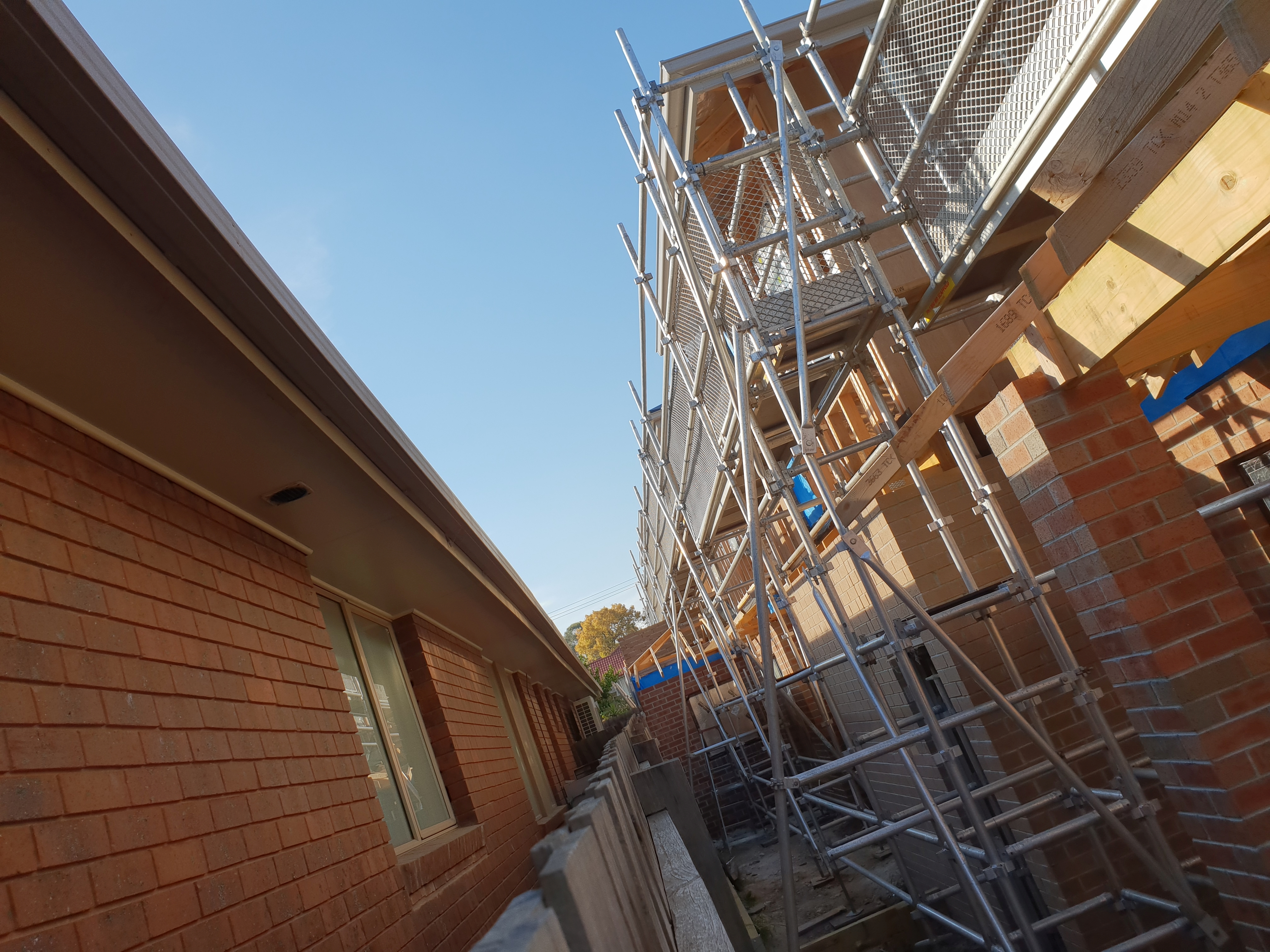Mr Scaffold has been busy across the country, and recently in Melbourne we were tasked with providing a scaffold in support of a new house build. The advantages of using aluminium scaffold in this situation is that it is easier to erect and dismantle, resulting in quicker build times and reduced interference with other time-sensitive parts of the build program. This scaffold utilises some of the footprint within the lower section of the roof structure, which naturally means that the tiling for those sections cannot be commenced until the scaffold is removed. The use of aluminium scaffold reduces the cascading time loss that would be presented if the scaffold could not be removed in a timely fashion.
Aluminium scaffold provides a firm, stable and reliable working platform for up to four workers within the one bay. This is more than sufficient for most works that do not involve the stacking of materials on the scaffold itself. Roofing, guttering, panels, windows, or non-masonry repairs are all well within the scope of works that are able to be completed from an aluminium scaffold.

As can be seen in the attached photos, the correct erection procedure for scaffold includes the application of cross-bracing, face bracing, tie-ins to the existing structure where possible, and outriggers to ensure a completely stable and reliable working platform. Each working level is accessed by a separate ladder bay, which removes the traffic of personnel from the vertical access trapdoors. Where fitted platforms do not adequately provide a working surface, then construction grade plywood and wooden planks are substituted and secured.
Where level changes are required, the adjacent handrails are adjusted to compensate for the higher level of standing. The gaps between handrails are mandated by Australian standards, as are the height and placement of toeboards. The addition of mesh screening is to minimise the possibility of tools and work debris from becoming a hazard for those working below.











